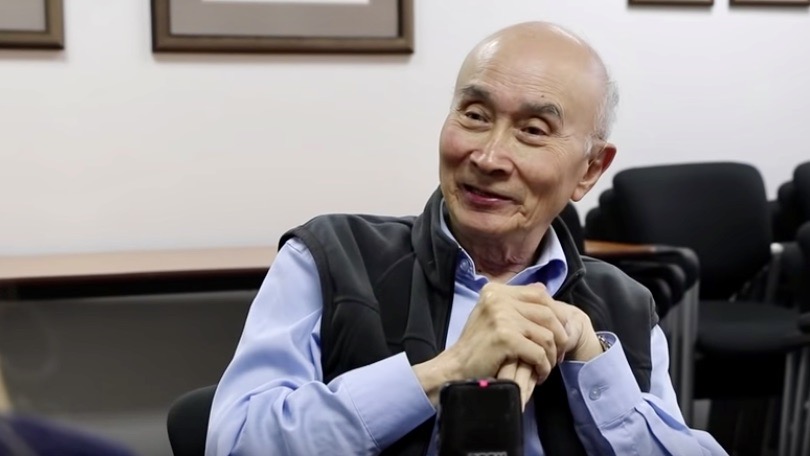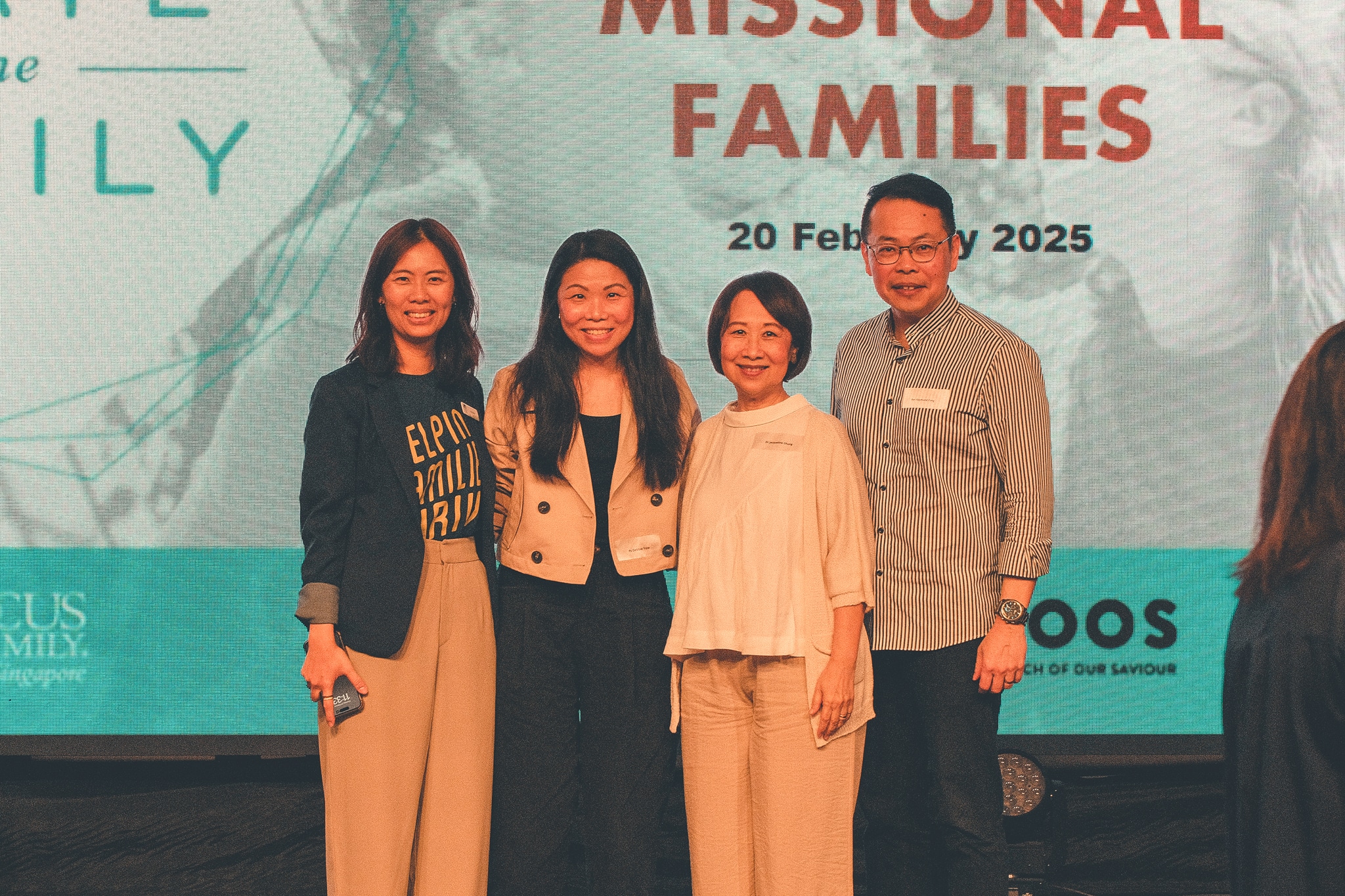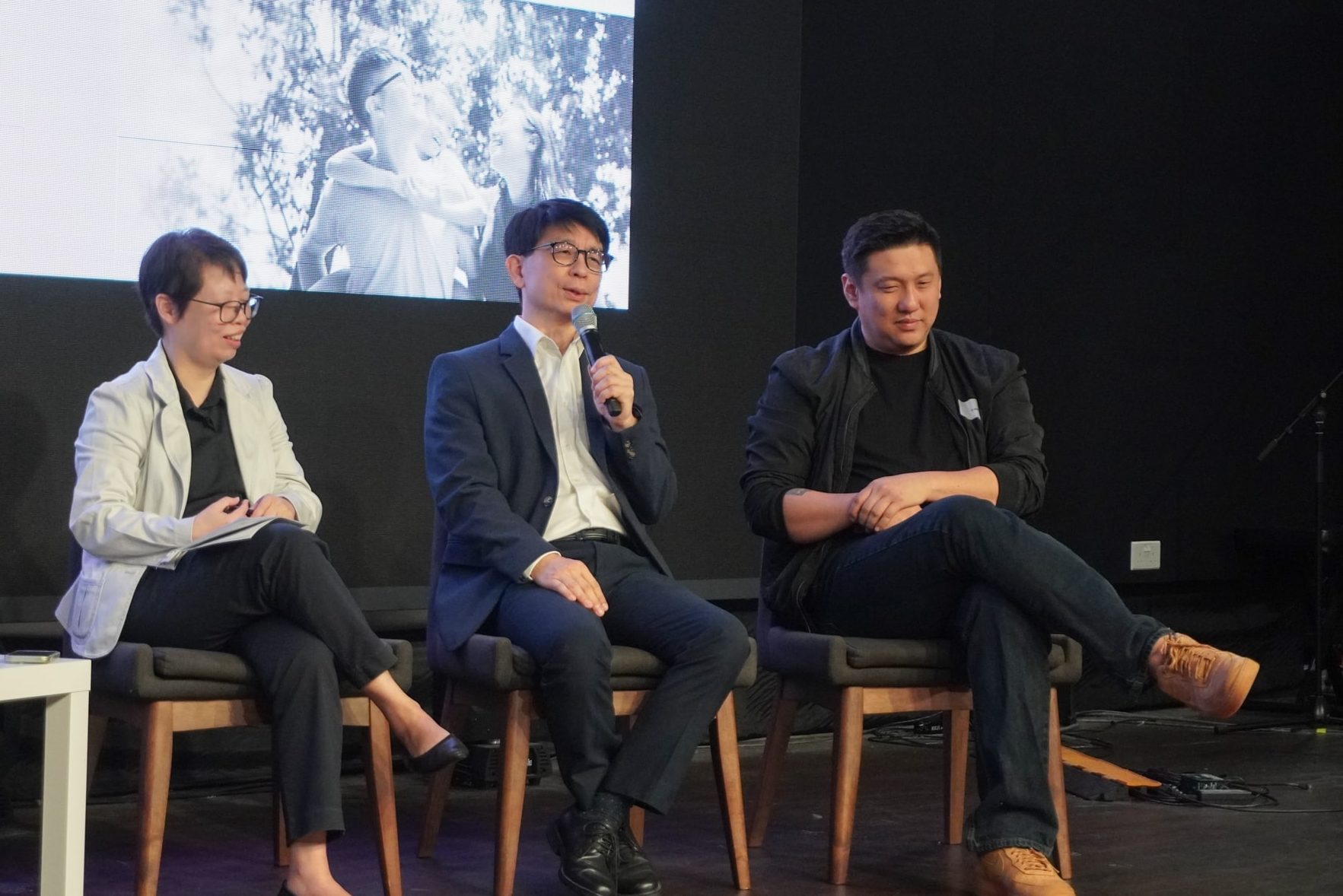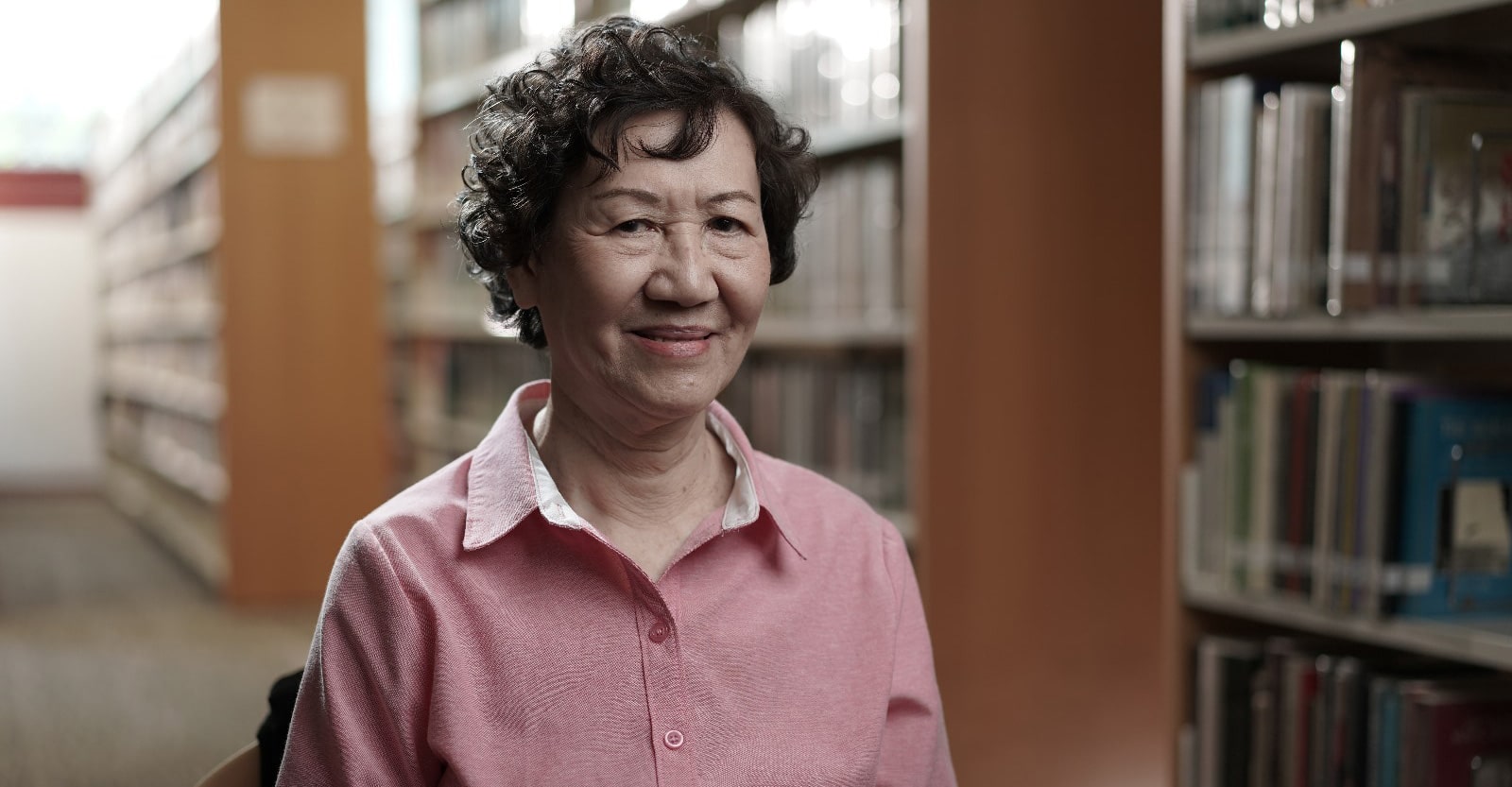What is on God’s heart? The Great Commission, Jim Chew reminds us
Salt&Light // October 25, 2019, 12:54 pm

Former national director of The Navigators Singapore Jim Chew went home to be with the Lord yesterday. Video still courtesy of The Navigators Singapore.
Jim Chew was called home to the Lord on Thursday, October 24, 2019. He was 81. The former national director of The Navigators Singapore last served in The Navigators of New Zealand as Asia-Pacific Missions Mentors with his wife, Selene. He passed away after a long battle with lung cancer.
In November 2014, Jim – whose late father Dr Benjamin Chew was Elder Chairman at Bethesda Katong Church – preached the following sermon to commemorate the 150th anniversary of the Brethren church in Singapore.
Memories
What encouraging sharing of God’s faithfulness – the growth of our churches! Thank God for the growth of our churches. The church was and is always meant to be missional and that is our theme for this anniversary – Called to be Faithful Witnesses.
“It’s Jesus only – nothing more, nothing less, nothing else”
Some of us will remember Bethesda at 77 Bras Basah Road. As you heard, it was first built in September 1866 when Philip Robinson and the first brethren built a house called Bethesda.
We seniors will remember that as you entered, you saw the plaque: Jesus Only (words from the Transfiguration). It certainly made its impact. I remember my brother writing those words in my autograph book: JESUS ONLY!
I remember my father before the Lord called him home, sharing his heart when I asked him what he was learning as he looked forward to meeting the Lord. He said, “It’s Jesus only – nothing more, nothing less, nothing else”. Simply Jesus.
Jesus only
We can make the good news complicated. It’s simply Jesus! Jesus Only!
At Bras Basah Road, I remember messages on the Types from Leviticus by A E Phillips. The types pointed to Jesus. I remember Dr Chia Boon Leong preaching, I loved the choir with James Hanam and Robert Tan leading. I remember visiting James Hanam with Elder Gordon Scott – James was in hospital in Vancouver.
The finished work of Christ – all done.
He could not speak because of a stroke but he could sing. We sang the verses of It is well with my soul! I remember Mr Lim Chin Keng quoting his favourite stanza at the Breaking of Bread: “My sin, O the bliss of this glorious thought; My sin, not in part but the whole; Is nailed to the cross and I bear it no more; Praise the Lord, praise the Lord, O my soul.” The finished work of Christ – all done.
I received Christ at Bethesda Katong at the age of 10 through the preaching of J Oswald Sanders. Elder Ong Tiang Tye counselled me. Elder Ong’s passion was to bring pleasure to God in our worship every Sunday morning.
Our theme is Called to be Witnesses – we have a message and a mission.
In the Great Commission, Luke’s version states how Christ will suffer and rise from the dead and repentance and forgiveness of sins will be preached in His Name to all nations. You are witnesses of these things. Luke continues in Acts with our Lord’s final words: “You will receive power when the Holy Spirit comes on you, and you will be My witnesses…”
We testify – share our personal stories about the Lord Jesus.
The word witness is martus (where our word martyr is derived reminding us that many have died for their witness). The word means “one who speaks from personal knowledge of facts”. Witnesses give their testimony – and do so repeatedly. “That which we have seen and heard, declare we to you…” I John 1:3; 2 Peter 1:8 – though we have not seen him, we love him, filled with joy unspeakable. We testify – share our personal stories about the Lord Jesus.
The apostles testified. Peter preached Jesus at Pentecost – His Person, his death, his resurrection. In Acts 8, Philip preached Jesus to the Ethiopian eunuch. Saul of Tarsus met the risen Lord in Acts 9 with his first question: “Who are You, Lord?” The reply: “I am Jesus whom you are persecuting.”
This evening I wish to highlight the witness of the church in Antioch.
I spoke on Antioch at the 1997 Brethren Networking Fellowship gathering. I feel like Peter as a senior elder in 2 Peter 1 who said, “I will always remind you of these things, even though you know them and are firmly established….” I will keep reminding you because it is right to refresh your memory.
Singapore, like Antioch
My father, Dr Chew, said that he visualised Singapore to be like Antioch.
That was also the vision of Matthew Finlay stated in his book at the 100th Anniversary of the Brethren movement. We have the nations all around us. Any healthy church must be missional. That means we keep advancing the Gospel of the uniqueness of Jesus and His Kingdom locally and globally.
Any healthy church must be missional.
In Acts, the Gospel had spread from Jerusalem to Judea. From Acts 1:8-8:1, it had spread to Judea and Samaria. Persecution scattered the church. Refugees that fled kept on “gossiping” the gospel. They had reached Antioch in Acts 11:19.
First century Antioch was a magnificent city – the third largest in the Roman Empire. Situated between the Lebanese and Tarsus mountains, it was a transportation centre with caravan routes in every direction. It was the melting pot of Eastern and Western cultures. Like Singapore, it was flourishing and people from all the world could be found in its markets, in its residential areas and public places. Just like us, with foreigners flooding in. Antioch was also a safe place and these Christian refugees could flee to it.
Messengers with a message
How did the church begin? Not by apostles or full time missionaries but ordinary believers, lay brethren who had been scattered by persecution. They started to witness to Jews but then (Acts 11:20) some men from Cyprus and Cyrene shared the good news to Greeks (Greek hellenistas – Greek-speaking people who practised Greek ways – describing the mixed non-Jewish population of Antioch).
These witnesses were witnessing. Verse 20 says: “… telling them the good news of the Lord Jesus.” That was their message: The Lord Jesus – of His lordship and deity. The Lord’s hand was upon them and a great number turned to the Lord.
Antioch is a reminder of where God’s heart is – the nations.
Here there was no mention of signs and wonders as in some other centres, but there was the Word and the Spirit – the convicting and convincing power of the Holy Spirit through the witness of these ordinary believers. Antioch is a reminder of where God’s heart is – the nations. There is no room for exclusive witnessing (to a particular race) – all peoples need the good news.
The leaders in Jerusalem then sent Barnabas to assess the situation. He came and saw the grace of God. Grace is what flows from God. Grace speaks of the transforming power of the Gospel from the inside out. These new Gentile believers were genuinely and soundly converted. Barnabas saw the freshness of salvation in celebrating grace and extending grace in their fellowship, not the legalism and judgmental attitudes that characterise some churches at that time – and sadly, now.
The Antioch church grew like any healthy church – with people coming to Christ, and being discipled. The Gospel transforms lives. Barnabas went to Tarsus and recruited Saul and the two of them taught these new believers. How would you like to be taught by two of the greatest Bible teachers for a whole year?
These believers were called CHRISTians (Christianoi) first at Antioch. The -ian means they belonged to the party of Jesus. Antioch was famous for giving nicknames in jest. Believers called themselves followers of the Way earlier on and now were nicknamed Christians, a term given by outsiders in derision but really a compliment.
Our mission is holistic – a concern for the poor and marginalised in society.
Jesus said: “Blessed are you when people insult you… and say all kinds of evil against you because of Me (Matthew 5:11). Rejoice and be glad!”
The end of Acts 11 mentions a famine that had spread. The disciples sent Barnabas and Saul to bring a gift to help the Christians in Judea and Jerusalem.
This reminds us that our mission is holistic – a concern for the poor and marginalised in society. Jesus spoke of prisoners and the poor, the needy and the sick. Thank God for churches and mission agencies serving among the poor and needy. Thank God many of our churches have such a ministry.
Mission always has this dimension of bringing shalom – true peace and prosperity, wellness and welfare to the marginalised as in Jesus’ sermon in Luke 4 – the good news is for the poor, the prisoners, the sick and oppressed, the fulfilment of Isaiah 61 – when the Gospel transforms and such people become oaks of righteousness, a display of God’s splendour.
Missional and multicultural
The Antioch church was missional; it was also multi-cultural. They had Jews and Gentiles. Antioch, like Singapore, attracted people from the region. The Gospel had progressed and the end of chapter 12 states that the word of God continued to spread and flourish.
Acts 13:1-3 describes the composition of the multi-cultural leadership team of prophets and teachers. Look at the names. Simeon called Niger, a black African; Lucius of Cyrene (modern Libya); Manaen, another quality leader who had grown up with the same Herod who had John the Baptist beheaded. And Barnabas, a Levite, and Saul, a Pharisee. These were the leaders. What a great church with good teaching and great leaders.
The challenge for us – we have a multicultural mission field at our doorstep.
While they were worshipping the Lord and fasting, the Holy Spirit spoke: “Set apart Barnabas and Saul for the work I have called them.” Clear as a bell. The multi-cultural church must be a missional church. Imagine the elders of the church having their meeting and the Holy Spirit says, two of you should be released to spread the good news! Three of the leadership team released the other two for missions. (The word sent them off is apoluo – released).
Any church that is not a missional church is a disobedient church. As John Stott put it: “It remains questionable whether a stay-at-home church, disobedient to the Great Commission is in any position to claim… the fullness of Christ’s promised presence” in Matthew 28:20. The challenge for us – we have a multicultural mission field at our doorstep. And we have our Lord’s great commission to be obeyed from our doorstep – to all the nations.
We are called to be faithful witnesses. God has blessed us. The Great Commission was given to Abraham in Genesis 12:1-3. God blessed him to be a blessing to the nations. Matthew 28:19 – Go make disciples of all nations… baptising them, teaching them obedience. The mission field– China, India, the Hindu-Muslim-Buddhist world – are within a few hours. Just as God sent Jesus into the world, so He sends us.
Where has God placed you? We need witnessing doctors and nurses, witnessing teachers and professors, witnessing engineers, witnessing economists and business people, witnessing lawyers, witnessing factory workers, witnessing accountants, witnessing members of Parliament, witnessing (name your profession), witnessing mothers, witnessing fathers, witnessing students and so on. And Singapore thankfully has all these professions and more I have not mentioned. Jesus said: “You are the salt of the earth, the light of the world.”
We are to be witnesses in every sphere of influence.
Whether you are at home or abroad – you are witnesses. Most of the cross-cultural missionaries I work with also have their professions as business and professionals in Asia and beyond. Some are in holistic work in areas of poverty and injustice and advancing the gospel and building biblical communities in the Philippines, Myanmar, Cambodia, Indonesia and other developing countries.
The Great Commission must be obeyed. That is on God’s heart. The Brethren movement has demonstrated that the Great Commission is primary. Acts 1:8 and Matthew 28:19-20 must continue to be a deep conviction. We are to be witnesses in every sphere of influence. The church cannot lose its cutting edge. And our witness must spread to all nations.
At Antioch, the church worshipped and fasted when the Holy Spirit instructed them to release Barnabas and Paul. When we worship together, we are part of that scene in Revelation 5 and 7 worshipping in heaven – the multitude of nations from every tongue and language and tribe. Can you visualise it? As John Piper said: “Mission is not the ultimate goal…. Worship is. Mission exists because worship doesn’t….” I pray that our worship will spur us on to mission, looking forward to ultimate reality when all the nations will be represented before the throne. And all the people said… Amen!
We are an independent, non-profit organisation that relies on the generosity of our readers, such as yourself, to continue serving the kingdom. Every dollar donated goes directly back into our editorial coverage.
Would you consider partnering with us in our kingdom work by supporting us financially, either as a one-off donation, or a recurring pledge?
Support Salt&Light



